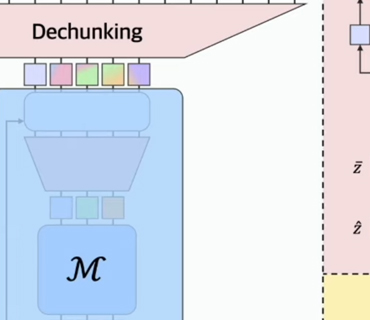Articles

The Paradox of Data Protection in the Age of Artificial Intelligence
Over the past decade, artificial intelligence (AI) has emerged as a revolutionary force with the potential to transform multiple sectors, from medicine to biotechnology, physics, and the automotive industry. Despite the obvious benefits that AI promises, its progress is being slowed by concerns about data protection, particularly in Europe. This situation presents an intriguing paradox: while personal data has been collected and used for years without proportional concern, AI now faces strict regulatory scrutiny in the name of privacy.
Since the popularization of the Internet and mobile devices, users have voluntarily or unknowingly given their personal data to large technology corporations. Through apps and websites, we have shared intimate and detailed information about our lives. Companies like Google, nicknamed "Big Brother," have been accused of listening to our conversations even when our phones are locked. This massive data collection has largely occurred without users' explicit knowledge, creating an environment where privacy is more of an illusion than a reality.
However, when it comes to AI, privacy concerns have reached a fever pitch. Current regulations, such as the General Data Protection Regulation (GDPR) in Europe, impose strict controls on data usage, which in many cases has slowed innovation in AI. This situation raises a fundamental question: why are we concerned about data privacy now when we haven't been in the past?
Artificial intelligence offers unprecedented opportunities for human progress. In the field of medicine, AI can improve diagnostics, enable personalized treatments, and accelerate the research of new therapies. In physics, AI can help unravel the mysteries of the universe by analyzing large volumes of data. In biology, AI applications can lead to significant advancements in genetic research and biotechnology. Furthermore, in the industry, particularly the automotive sector, AI is key to developing autonomous vehicles that promise to reduce accidents and improve transportation efficiency.
Halting or slowing these advancements due to privacy concerns seems short-sighted and ignorant. It is essential to recognize that AI is not inherently dangerous to privacy; rather, it is the way data is managed that matters.
Despite the historical permissiveness in data collection, privacy concerns are not unfounded. It is crucial to find a balance between protecting individuals' privacy and fostering innovation in AI. Regulations should be designed to protect personal data without stifling technological progress. This requires a flexible and adaptive regulatory approach that allows AI to develop safely and ethically.
Part of the problem lies in the lack of education and public awareness about how data is used and the potential benefits of AI. Many people do not fully understand how their data is collected and utilized, which fuels fear and distrust. Promoting greater understanding of these topics can help alleviate concerns and formulate more informed and effective policies.
Companies and AI developers must be transparent about how they use data and take responsibility for protecting it. Public trust can be earned through clear and ethical data management practices. This includes implementing robust security measures, minimizing the collection of unnecessary data, and respecting users' privacy.
Artificial intelligence has the potential to transform our lives in profound and positive ways like never before. However, for this to be possible, we must overcome regulatory barriers that, although well-intentioned, can be disproportionate. The key is to find a proper balance between privacy protection and innovation promotion. Only through transparency, education, and balanced regulation can we fully harness the opportunities that AI offers without sacrificing individual rights.
The debate over AI and data protection should not be an excuse to halt progress, but an opportunity to establish a framework that promotes both innovation and ethics. It is time to move forward intelligently and responsibly towards a future where technology and human rights coexist in harmony.
I say YES to AI!
And to those who want to do good with it in fields such as medicine, nature conservation, education, and the like, I say, "Here, take my data!"
Ladies and gentlemen, we must not stop the progress of AI; regulating is not stopping! However, stopping has unfortunately become synonymous with regulating.
In Europe, we live in the Neanderthal era when it comes to artificial intelligence, and the saddest part is that we don't accept it.














The Author
Juan García
Juan García is an Artificial Intelligence Expert, Author, and Educator with over 25 years of professional experience in Industrual Businesses. He advises companies across Europe on AI Strategy and Project Implementation and is the Founder of DEEP ATHENA and SMART &PRO AI. Certified by IBM as an Advanced Machine Learning Specialist, AI Manager and Professional Trainer, Juan has written several acclaimed Books on AI, Machine Learning, Big Data, and Data Strategy. His Work focuses on making complex AI Topics accessible and practical for Professionals, Leaders, and Students alike.
More